Project Ghibli #4: Chie The Brat
- Original Release: 11th April 1981
- Director(s): Isao Takahata
- Producer(s): Hidenori Taga and Tetsuo Katayama
- Screenwriter(s): Isao Takahata and Noboru Shiroyama
- Alternative Title(s): Downtown Story / Jarinko Chie / Kié La Petite Peste
Our fourth film by Director Isao Takahata is a bit of a wildcard. Originally released in Japan in 1981 and later in France in 2005, it's a rather niche film that hasn't quite entered public consciousness elsewhere. Inspired by the popular Japanese manga series by Etsumi Haruki, there's been no official English release and neither the Japanese nor French releases include English subtitles.
In the interests of completeness, I imported the DVD from Japan and relied on fansubs for the English translation. Note to our American cousins: The DVD is region 2 so will *not* play on non-European DVD players unless they are region-free. But read on and i'll save you the trouble!
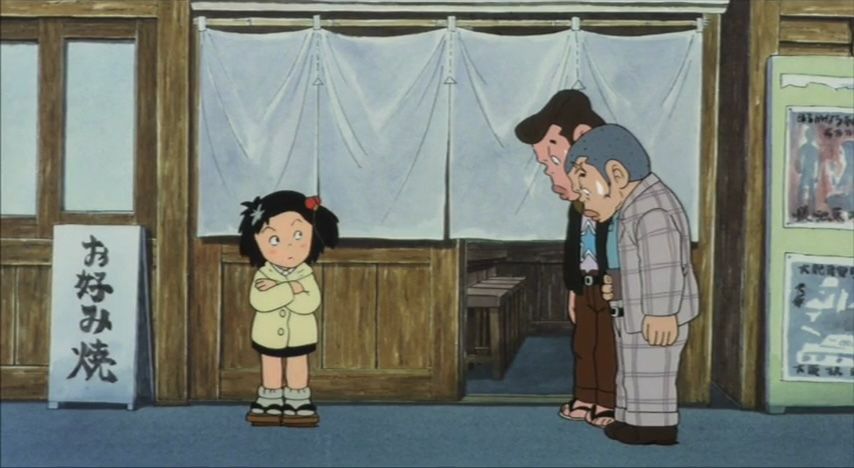
The story is that of Chie, a ten year old girl living in Osaka, running her father Tetsu's Kushi restaurant while he spends his days gambling and picking fights with the local Yakuza. Her mother Yoshie has left them but secretly meets with Chie from time to time in the hopes that she can one day return once her husband has changed his ways.
Rather than being a brat as the title suggests, Chie is a resilient, resourceful little girl who earns the respect of all who meet her. She is mortified by her father's antics and gives him more than a few scoldings, but on the whole she loves both her parents and tries to set Tetsu on the straight and narrow in the hopes that she can reunite her dysfunctional family.
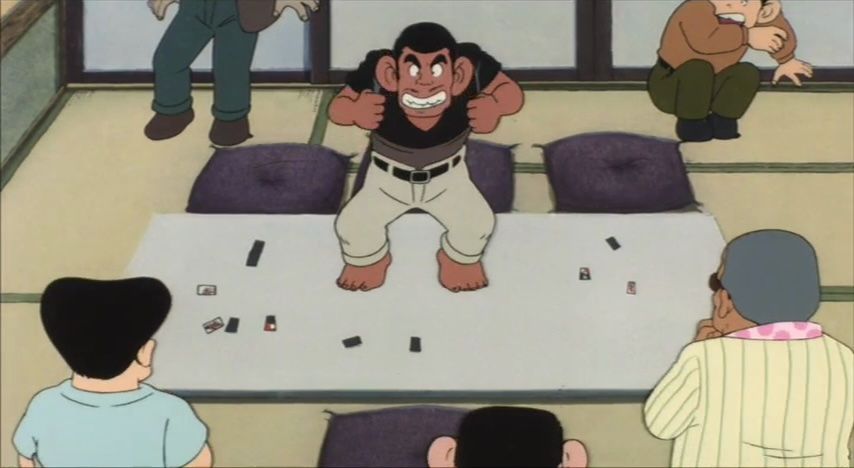
There's a lot of violence in this film, although it is comedic and exaggerated like a Tom and Jerry cartoon with fisticuffs and all sorts of household items being smashed on people's heads. Tetsu is often the instigator and - while he never raises a finger against Chie - his violent streak is one of driving forces of the plot since he usually finds himself in trouble and Chie ends up sorting it out. A whole other plot line is started when the owner of the local gambling establishment comes looking to collect on Tetsu's debt. Chie's newly adopted cat, Kotetsu, fights off the club owner's cat, Antonio, ripping off one of his testicles!
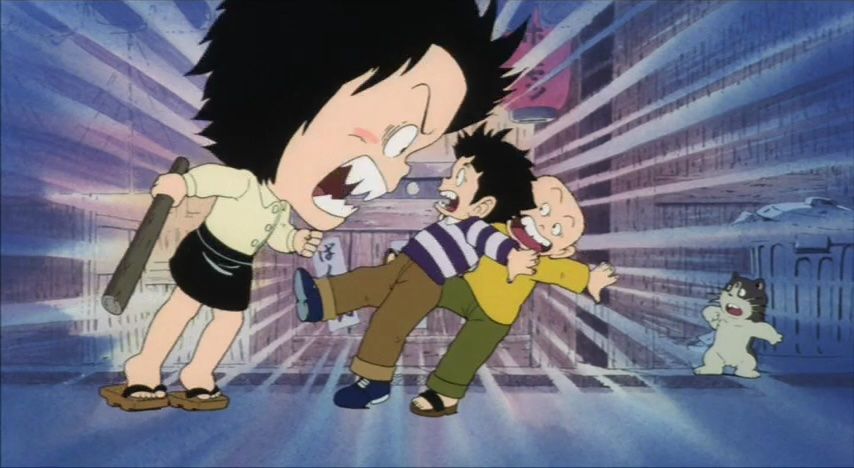
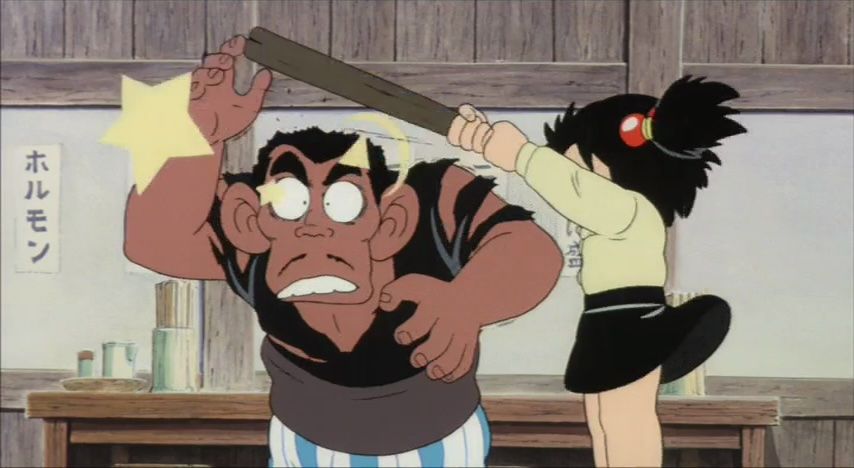
That's right: testicles feature a lot in this film! When Antonio meets an untimely demise, his stuffed missing-a-testicle carcass is put on show for all to see. Meanwhile Kotetsu lounges around with his own crown jewels proudly on display throughout the film. There's a foreshadowing of the testicle pride of Takahata's later film, Pom Poko, but that film is a lot more palatable than the selfish, violent, greedy impulses on display here. The cats mirror the idiotic violence of the adults in the film so there may be some intended mirroring of Tetsu's 'castration' by his elder, Sensei Hanai, later in the film.
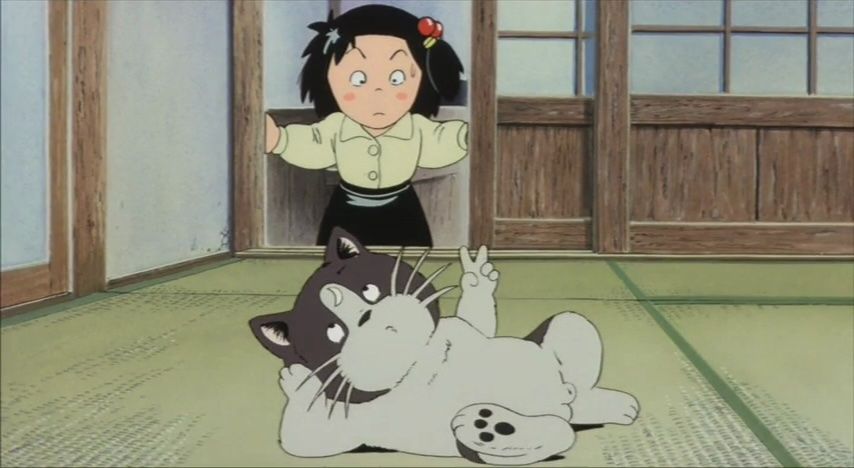
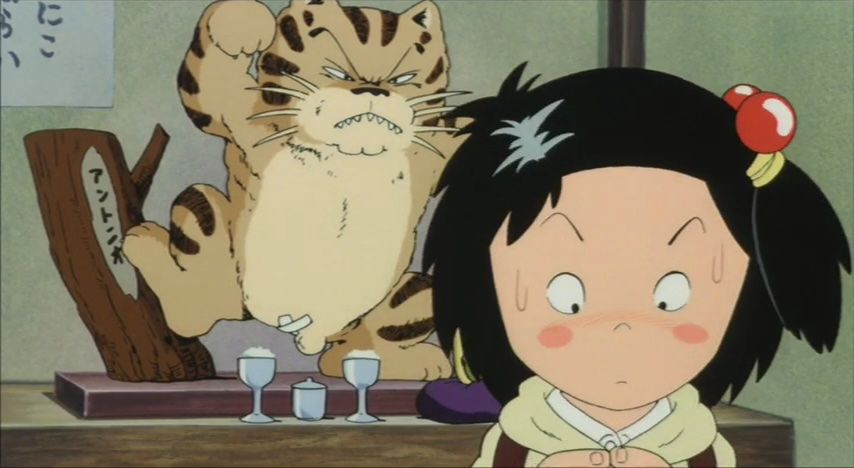
Going in, I expected a redemption story, with Tetsu overcoming his temper and vices, and reuniting with his wife and daughter. Instead, everyone around them is changed by the events of the film. After the death of Antonio, the club owner gives up gambling to run an Okonomiyaki restaurant, while a couple of Yakuza thugs become caramel sellers after Chie saves them from a beating by Tetsu. Even Antonio's son, Antonio Junior, originally out for blood, has an abrupt change of heart and nurses Kotetsu back to health in the closing credits.
[caption id="attachment_8106" align="alignnone" width="854"]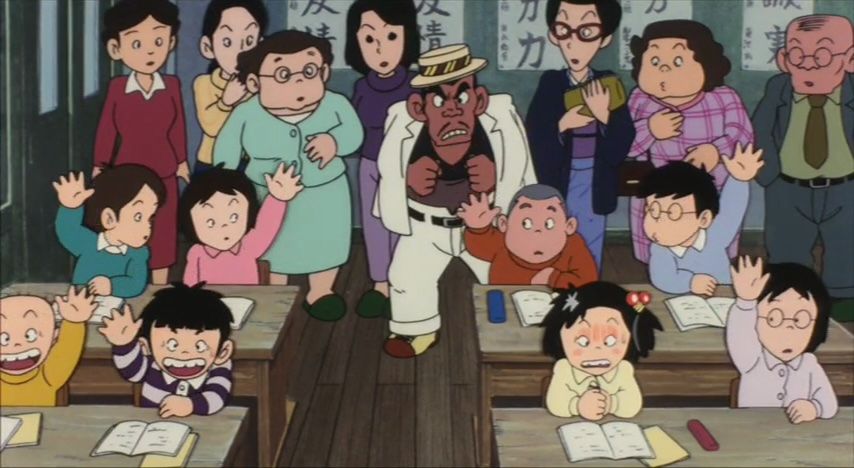
In contrast, Tetsu never really changes his ways despite many opportunities to do so. He solves everything with violence, including picking a fight with Chie's teacher during parents' day. Even after they share a heartwarming day out as a family, he delights in arranging a literal catfight. His wife, Yoshie, meanwhile, returns to the family home and immediately apologises for causing Tetsu distress by her presence. It's a period film with definite nods to traditional gender roles but that just makes it all the more frustrating.
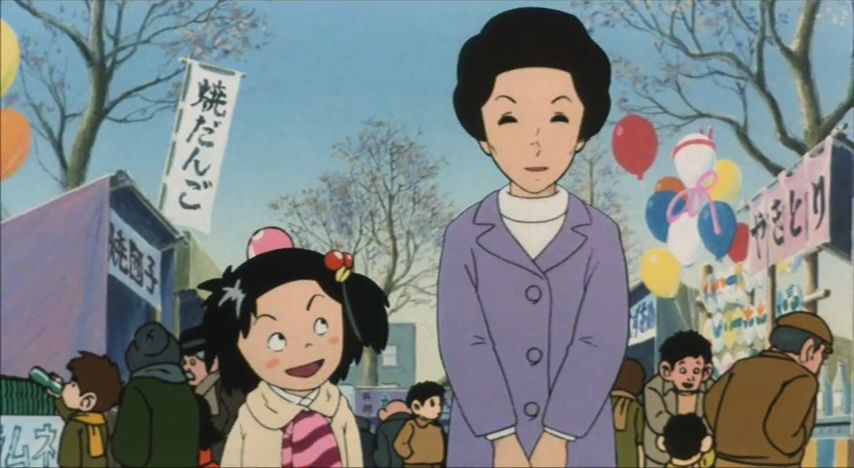
Overall I found it a difficult film to watch. It's quite long at 110 minutes and, while entertaining at times, didn't always hold my attention despite all the action. This is very much a Takahata film: the plot meanders and - unlike a Miyazaki film - never really provides an overall message. Although the family are reunited by the end, this is really only at the behest of the family's elders, and there's a sense that Chie will remain the responsible one and her father's antics will simply continue. While the animation is good and there is a lot of humour here, I couldn't really recommend this film.
[caption id="attachment_8105" align="alignnone" width="854"]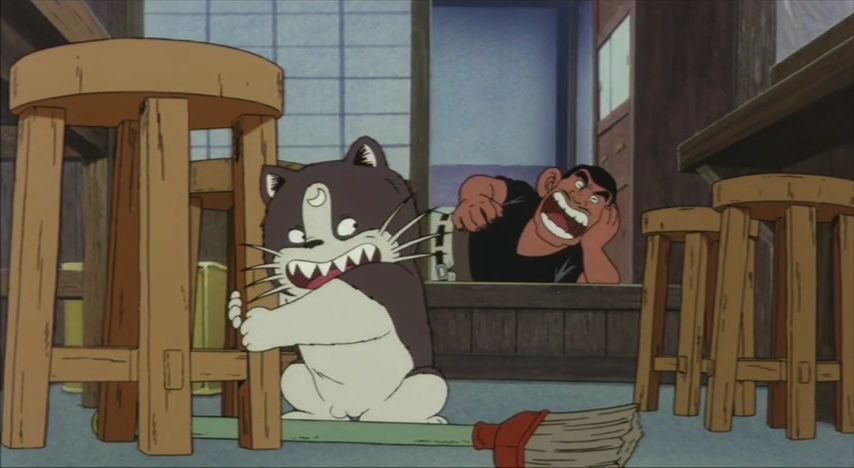
Next up: more animal appearances in a film about a struggling musician
